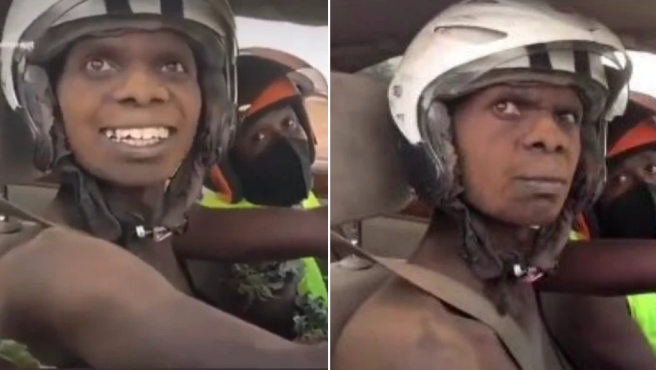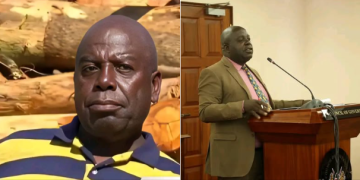After two comedians, Arap Marindich and Tula Chemoget, went popular for imitating World Rally Championship drivers who competed in the Safari Rally in Naivasha, Nakuru County, in June, the Kenya Copyright Board (KECOBO) issued a warning to Kenyans against the use of memes.

In a statement dated Friday, August 5, KECOBO noted that using the comedians’ works for commercial purposes without their permission is a copyright violation.
“While the use of memes in social media is tolerated, its creation and use for commercial purposes can attract significant civil liability and must be cleared from the authors,” their letter read in part.
The warning comes after social media platforms became awash with two comedians imitating World Rally Championship drivers.
Marindich and Chemoget’s photos had been reproduced and packaged into memes and widely shared globally, including in countries such as Zambia, Uganda, Tanzania, Italy, Spain and parts of Europe.
They went viral after explaining how rally drivers manoeuvred rough terrain during the World Rally Championship in Naivasha.
Following the increased use of their memes, KECOBO says corporate entities using the memes should seek the consent of the comedians failure to which they will be liable for contravening the Copyright law.
Infringement of Copyright occurs when a third party performs any of the exclusive acts granted to the author without the authority of the rights holder.
Copyright is essentially a private right, so enforcement follows directives from the author. Deliberate infringement of copyright on a commercial scale may be a criminal offence.
Defending the decision to restrict the use of memes, the Kenya Copyright Board maintained that it makes it difficult for comedians to earn from their artistic creations if consent is not sought.
“Therefore, a meme generated without the authority of the Copyright owner is an infringement on their copyright particularly the exclusive rights to reproduce, copy, adapt and publish since the original photograph or video undergoes some alteration and incorporation of a text,” KECOBO explained.
In enforcing the law, KECOBO receives complaints and carries out investigations before carrying out raids and confiscating the infringing copies before prosecuting the matters in court.
Once the matters have been determined, the Kenya Copyright Board destroys the material as per the court orders.
In one landmark case, a Eldoret-based businessman was jailed for six months for infringing on Copyright.
In a recent case, Sauti Sol accused Azimio la Umoja for violating their rights by playing one of their songs during the unveiling of Raila Odinga’s running mate, Martha Karua.









































